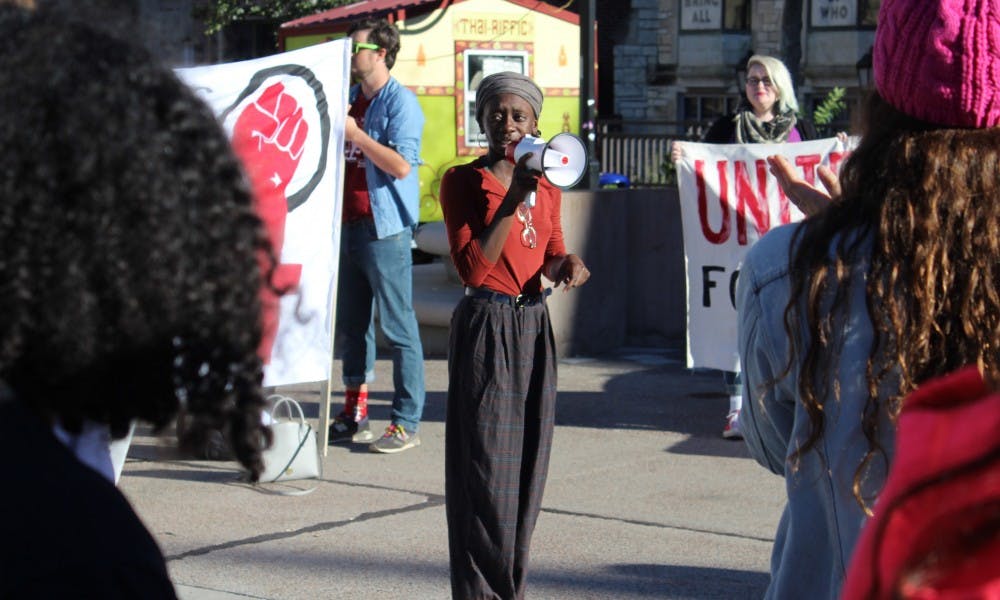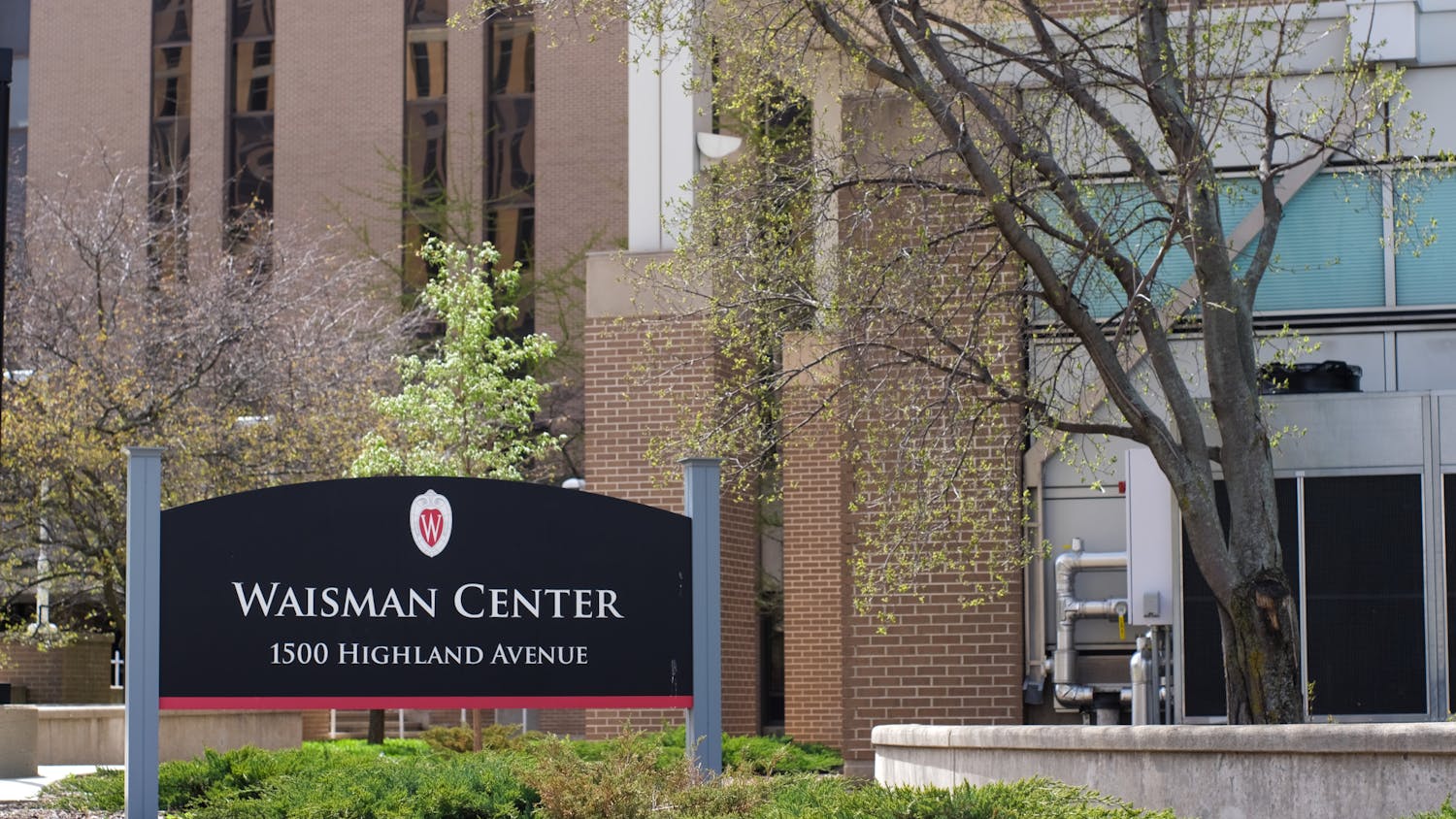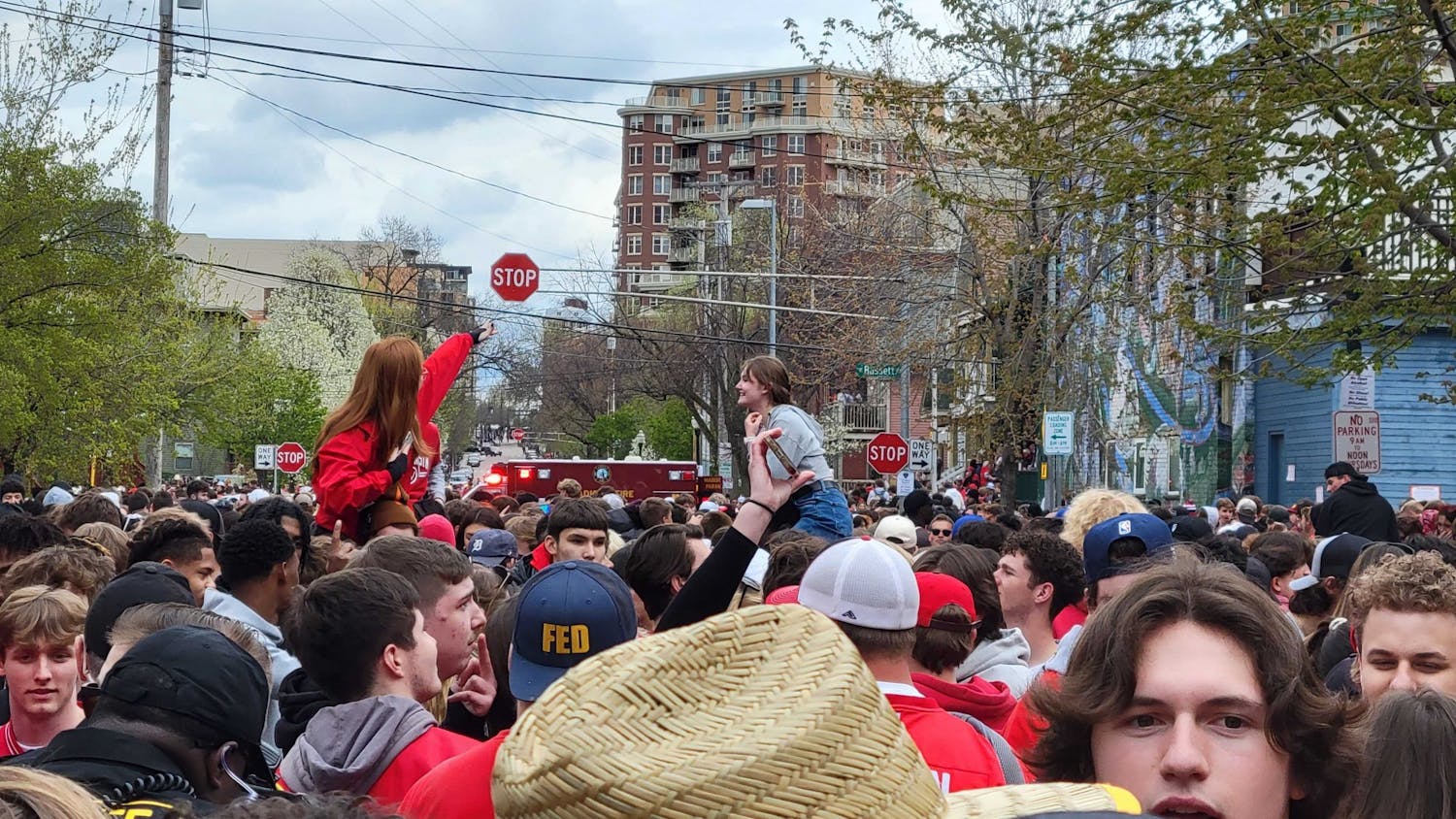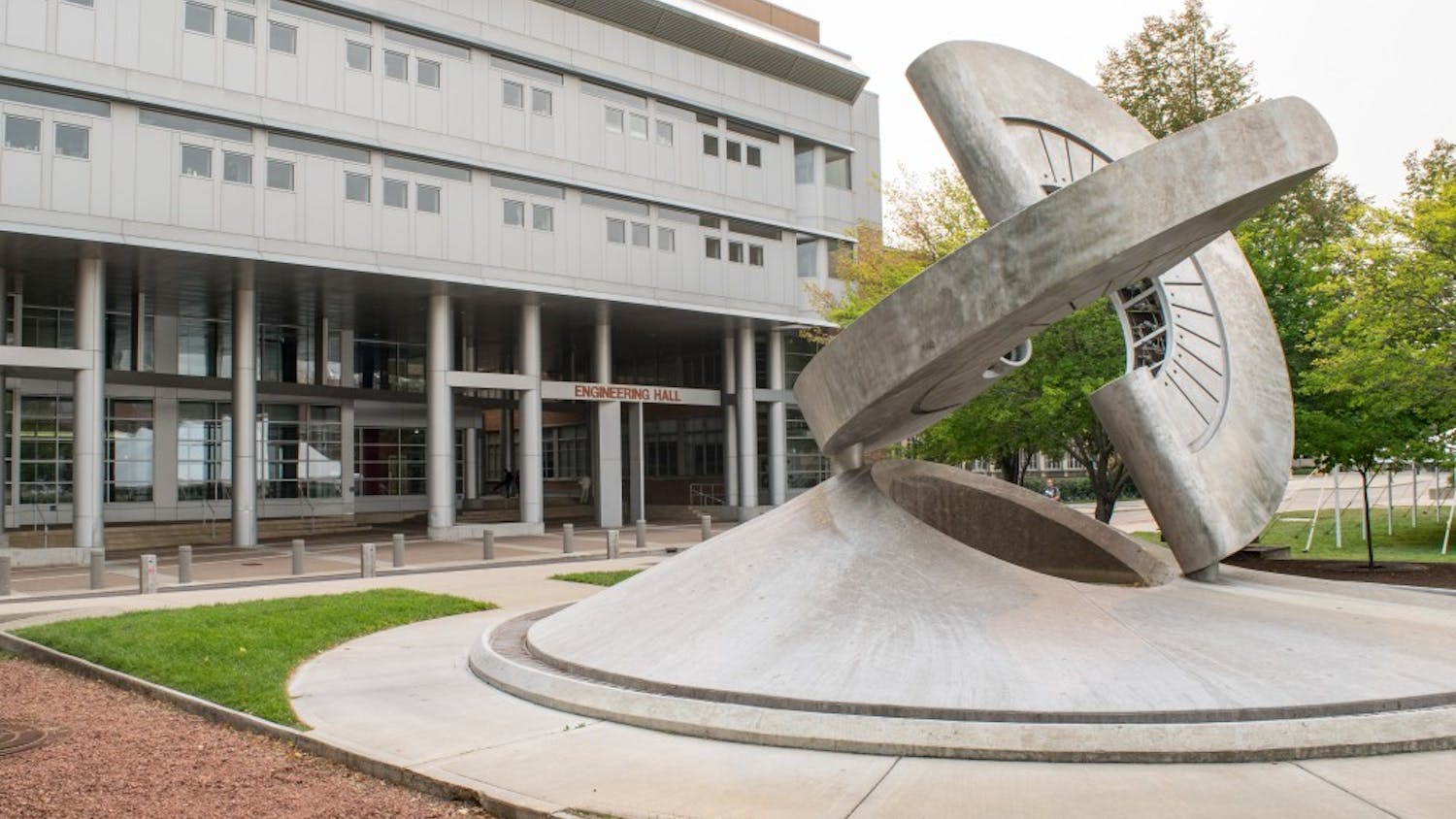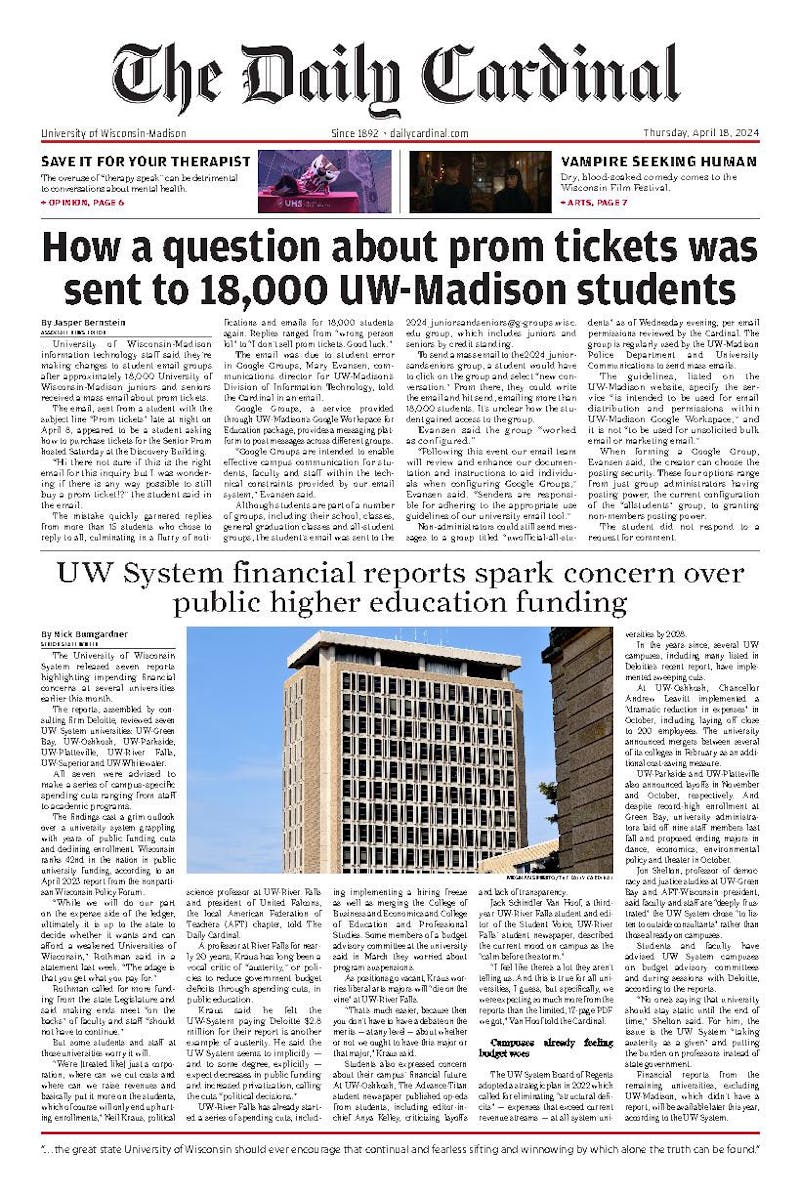In November 2016, around 15 students protested conservative media personality Ben Shapiro’s on-campus lecture.
Now, the UW System policy that states students who disrupt campus speech three times will be expelled could become state law.
Protesters of the 2016 Shapiro lecture — “Dismantling Safe Spaces: Facts Don’t Care About Your Feelings” — chanted “shame” and “safety” before going to the stage and standing in front of Shapiro. As the protesters left, one flipped off Shapiro, who retaliated by holding up both middle fingers.
He was able to finish his lecture, and UWPD made no arrests.
UW-Madison later released a statement regarding the incident at the lecture.
“We are dedicated to promoting a campus environment where all people feel valued and respected,” the statement said. “To that end, the university expects community members to engage in discussion, especially over controversial issues, in ways that are respectful of others’ viewpoints and that promote greater understanding. We are disappointed that some attendees at the event chose not to do so.”
Republican legislators also responded, creating the Campus Free Speech Act, which penalizes individuals who disrupt free speech. The act also sets up a “three-strikes” system that hands out suspensions and expulsions for repeat offenses.
While the Campus Free Speech Act passed the Assembly along party lines, it never reached the floor of the state Senate, the Wisconsin Examiner reported.
However, some of the Campus Free Speech Act’s central ideas transferred in the UW System’s Commitment to Academic Freedom and Freedom of Expression policy, which the Board of Regents approved in October 2017.
The policy, which is still in place at all UW System campuses, “[r]equires suspension for a student who has twice been found responsible and expulsion for a student who has thrice been found responsible for disruption of freedom of expression.”
The Commitment to Academic Freedom and Freedom of Expression currently exists only as UW System policy. However, this August, Republican lawmakers re-introduced the Campus Free Speech Act. If the bill passes, the UW System policy would become state statute.
Associated Students of Madison Press Office Director Matthew Mitnick stated ASM believes the bill is "overall unnecessary."
Right now, what tips a protest into disrupting another person’s free speech is up to the discretion of each university. It’s unclear if this would change if the bill becomes law.
ASM Shared Governance Chair Amol Goyal said allowing campuses to make decisions about whether conduct infringes on another’s free speech “makes the most sense.”
“An essential part of this is that each campus in the UW System gets to decide what is considered disruptive and non-disruptive,” Goyal said. “That is the best way to ensure that there is shared governance, to ensure that people have the ability to protest, because America's civil rights movement is based on protest, and we want to empower students to continue to do that.”
A UW-Madison press release entitled “Know before you go” offered examples of potential disruptive and non-disruptive behavior.
Anything involving violence, intrusion, blocking, interfering noise or forbidden signs would fall under the “disruptive” category, while silent protests, small signs, permitted costumes or engaging with speakers if they welcome the interaction are all “likely non-disruptive behavior.”
UW-Madison students’ behavior is determined to be disruptive or not through the Protest Administrative Review Team, according to Goyal, who is a part of the review team. The team has developed a set of guidelines to help students navigate these free speech and protest rules safely.
“We are working alongside faculty to develop a thorough process which helps empower students,” Goyal said. “We're working to make clear to students how to protest in a way that supports all of their efforts and retains the values of free speech, but it also helps keep the campus community safe.”
Update 9/4/19 2 p.m.: This article has been updated to include a statement from ASM about the bill.

